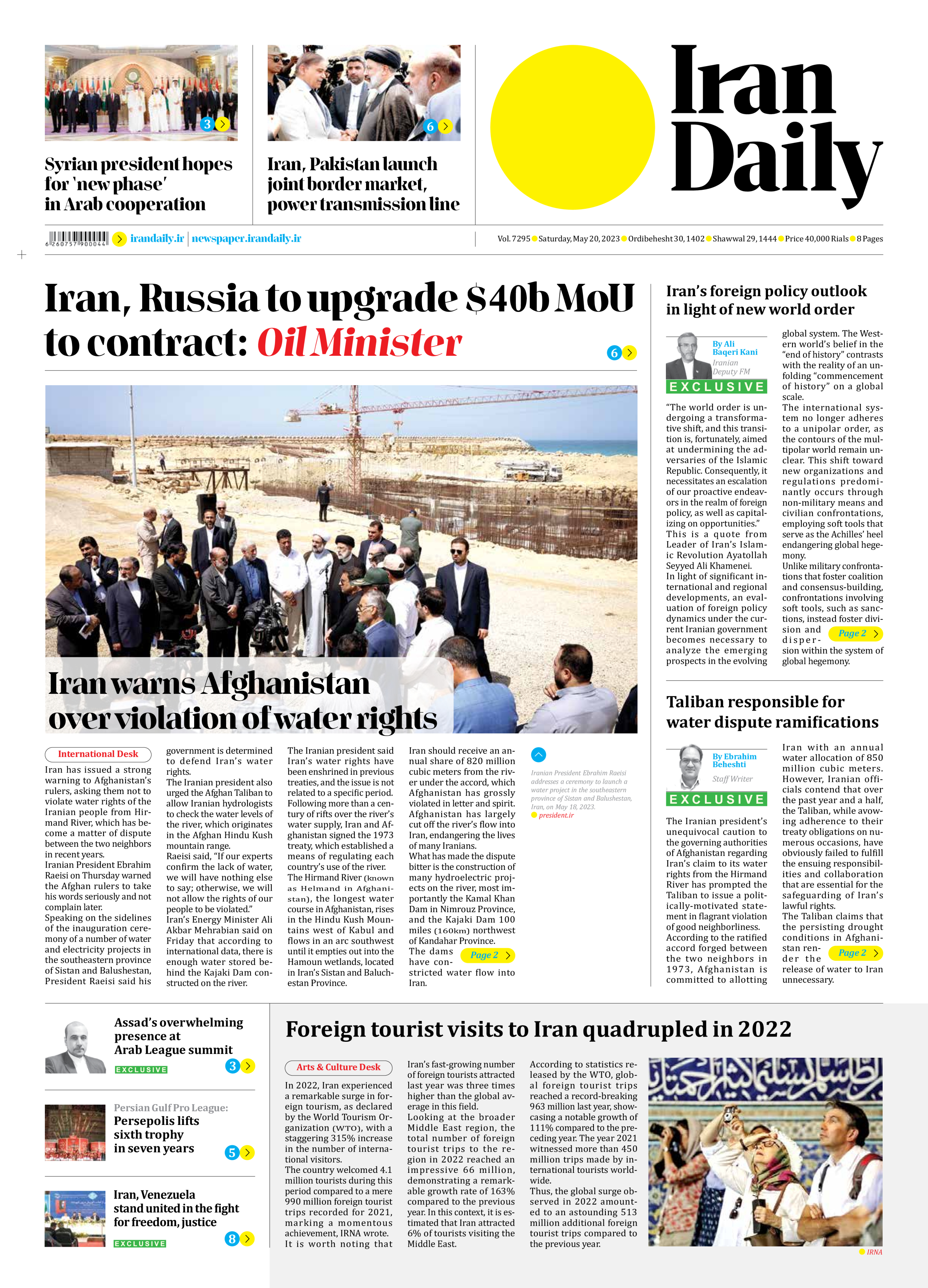
Iran warns Afghanistan over violation of water rights
Iran has issued a strong warning to Afghanistan’s rulers, asking them not to violate water rights of the Iranian people from Hirmand River, which has become a matter of dispute between the two neighbors in recent years.
Iranian President Ebrahim Raeisi on Thursday warned the Afghan rulers to take his words seriously and not complain later.
Speaking on the sidelines of the inauguration ceremony of a number of water and electricity projects in the southeastern province of Sistan and Balushestan, President Raeisi said his government is determined to defend Iran’s water rights.
The Iranian president also urged the Afghan Taliban to allow Iranian hydrologists to check the water levels of the river, which originates in the Afghan Hindu Kush mountain range.
Raeisi said, “If our experts confirm the lack of water, we will have nothing else to say; otherwise, we will not allow the rights of our people to be violated.”
Iran’s Energy Minister Ali Akbar Mehrabian said on Friday that according to international data, there is enough water stored behind the Kajaki Dam constructed on the river.
The Iranian president said Iran’s water rights have been enshrined in previous treaties, and the issue is not related to a specific period.
Following more than a century of rifts over the river’s water supply, Iran and Afghanistan signed the 1973 treaty, which established a means of regulating each country’s use of the river.
The Hirmand River (known as Helmand in Afghanistan), the longest water course in Afghanistan, rises in the Hindu Kush Mountains west of Kabul and flows in an arc southwest until it empties out into the Hamoun wetlands, located in Iran’s Sistan and Baluchestan Province.
Iran should receive an annual share of 820 million cubic meters from the river under the accord, which Afghanistan has grossly violated in letter and spirit.
Afghanistan has largely cut off the river’s flow into Iran, endangering the lives of many Iranians.
What has made the dispute bitter is the construction of many hydroelectric projects on the river, most importantly the Kamal Khan Dam in Nimrouz Province, and the Kajaki Dam 100 miles (160km) northwest of Kandahar Province.
The dams have constricted water flow into Iran.
Meanwhile, Iran’s Foreign Ministry, in a statement, rejected as “contradictory and false” a statement by Afghan ruling authorities that blamed lack of precipitation for a halt to the flow of water to Iran.
“The Islamic Republic of Iran reserves the right to take the necessary measures and emphasizes the full responsibility of Afghanistan in this regard,” the Foreign Ministry said in a statement.
“In practice, the rulers of Afghanistan have not honored the commitments under the treaty and have not offered the necessary cooperation in supplying Iran’s legal water rights,” the ministry said.
“The non-implementation of the treaty and non-provision of Helmand water rights by Afghanistan, while issuing political statements without practical action are not acceptable in any way,” Iran’s Foreign Ministry said.
Taliban spokesman Zabihullah Mujahid said in a tweet that Kabul was “committed to fulfil its obligations,” but argued that due to “severe drought,” water levels have decreased.
He added, “inappropriate statements” made by Iran in this regard can harm ties between the two countries.







